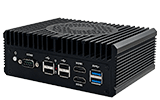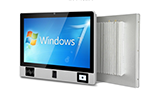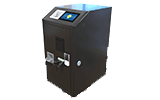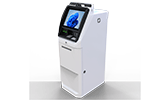
ZKTEK provides all kinds of custom OEM/ODM ATM machine,interactive kiosk,information kiosk, touchscreen kiosk, touchscreen monitor, touchscreen computer, box ipc,digital sginages, pos and metal keyboard products
News: Indonesia 's Bank Tabungan, U.K.'s Compass Tackle EMV Migration
-
Indonesia 's Bank Tabungan, U.K.'s Compass Tackle EMV Migration Brief:
"With such a high focus on combating fraud, Indonesia sees EMV as an essential step in helping to reduce criminal activity," Cowper said, adding that about 20% of the Indonesian population has a bank account, and about 11% has a debit card.
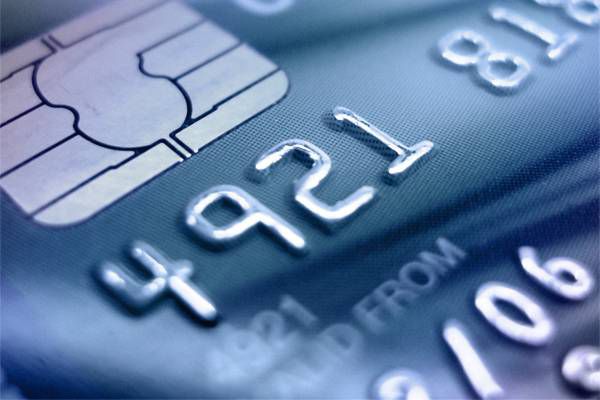 [September 09 2014 By John Adams]In Indonesia, Bank Tabungan is partnering with financial services software company Compass Plus to navigate the issuance of EMV-chip cards ahead of its national deadline.
[September 09 2014 By John Adams]In Indonesia, Bank Tabungan is partnering with financial services software company Compass Plus to navigate the issuance of EMV-chip cards ahead of its national deadline."EMV has been such a success globally, that Indonesia, alongside other countries in Asia Pacific are well positioned to take advantage of utilizing the experiences of other countries to make sure that their own banks' migration experiences run as smoothly as possible," said Bethan Cowper, head of international marketing at Compass Plus, which is based in Nottingham, U.K.
The chip-card migration process in Indonesia is different than in the U.S. While the U.S. migration is being mostly driven by the card networks, which have set an October 2015 liability shift for most companies , the Indonesian move is being guided by Bank Indonesia, the country's central bank (NSICCS).
In Indonesia, all banks are required to use 6-digit PINs on credit cards by the end of 2014 and chip-debit cards by the end of 2015, she said.
The Indonesian standard is based on the international smart card standards and specifications of ISO 7816; the EMV standards; and Global Platform, an international chip security standard, Cowper said.
Card fraud is enough of a problem in Indonesia to slow the country's overall migration away from cash payments.
"With such a high focus on combating fraud, Indonesia sees EMV as an essential step in helping to reduce criminal activity," Cowper said, adding that about 20% of the Indonesian population has a bank account, and about 11% has a debit card.
Other payment companies in Indonesia have complained about the cost of the EMV migration, which is being mostly absorbed by the banks. In Indonesia, EMV point of sale devices are supplied by global hardware companies such as Ingenico and NEC, as well as by local suppliers.
The issues of cost and deadlines are also a problem in the U.S., where merchants have long balked about the expense of the upgrade to chip cards, while payment experts in the U.S.widely expect the migration will not be complete until well after the October 2015 target.
"The ease of upgrade to EMV really depends on the partners that each bank works with and their previous experience of such projects," Cowper said. "The speed of implementation depends on numerous factors including software, hardware and the priorities of the financial institution itself."
Bank Tabungan, which has 87 branches and more than 500 smaller banking centers in Indonesia, offers local debit cards with plans to provide installment loans and credit cards in the near future. Compass Plus did not give specifics on the timing of the bank's EMV migration, though Cowper said the largest challenge in the market was the need to meet the deadlines.
In addition to chip cards, Bank Tabungan also hopes to boost its payments market share by taking advantage of the country's adoption of mobile phones.
"Indonesia is an archipelago comprising more than 17,000 islands, and the combination of the population and the geography of the country means that the potential for the future proliferation of mobile banking is substantial," Cowper said.
The bank's mobile initiatives include BTPN WOW, which allows consumers to deposit and withdraw cash, top-up phone credit and pay bills at local kiosks using their phones, Cowper said. The kiosks have been set up in villages at locations such as food pushcarts, convenience stores, gas stations and fertilizer stores.
Consumers receive fund transfers by showing a local agent a text message proving they are entitled to the amount of money specified and then pay a fee to collect the money. "BTPN is targeting farmers, factory workers, construction workers, street traders and maids among others," Cowper said.
